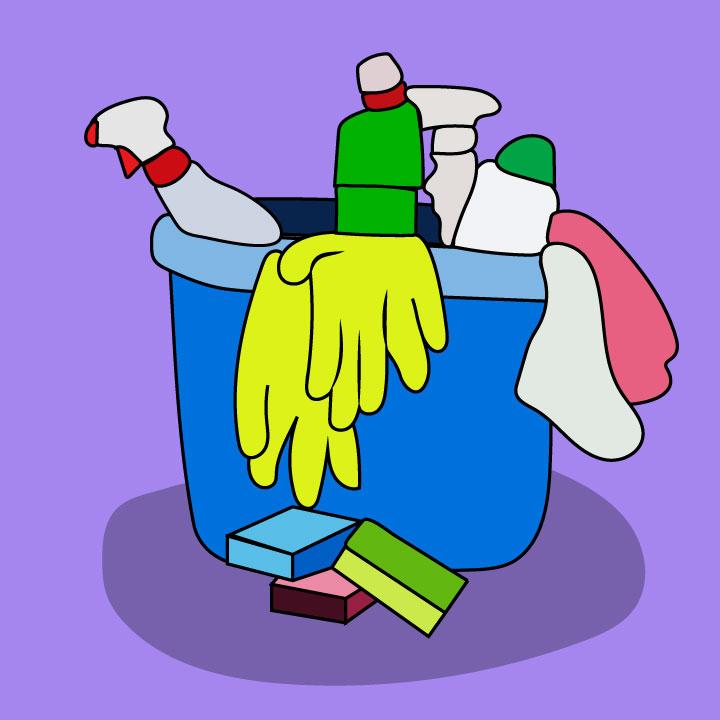Therapy Clean is helping people clean up their home and health
According to the U.S. Bureau of Labor Statistics, women spend around 29 minutes per day on interior cleaning of the home, and another 13 minutes per day cleaning up the kitchen after meals. When you add up how much time they are spending per week, month, and year, it’s clear to see how important the cleaning products they are using becomes. Plenty of research has shed light on the idea that some ingredients found in household cleaning products can be harmful to one’s health. Making the switch to plant-based cleaning products can go a long way toward helping to combat this issue.
“We are committed to helping people have access to cleaning products that will help them do the job, but not at the cost of their health,” explains Anne Ruozzi, co-founder of Therapy Clean, a company offering a line of plant-based specialty cleaning products made in the USA. “We take comfort in knowing that we are providing people with a safer way to clean.”
Therapy Clean is on a mission to revolutionize the industry and get people to make the switch to plant-based home cleaning products. There are numerous reasons to make the switch, including:
- Lung health. According to the American Lung Association, some cleaning products release dangerous chemicals. These can contribute to chronic respiratory problems, including allergic reactions and headaches, and they are being studied for their connection to asthma and other respiratory illnesses.
- Microbiome integrity. Our gut microbiome is made up of the microbes and bacteria that live in our intestinal tract. If they become unbalanced, referred to as dysbiosis, then it can lead a wide range of health issues, including obesity, irritable bowel syndrome, inflammatory bowel disease, rheumatoid arthritis, and metabolic syndrome. The chemicals in household cleaners can have an impact on the health of everyone in the home, including infants. Research that was published in the journal CMAJ found that antibacterial cleaning products can change the environmental microbiome and raise the risk of a child later becoming overweight.
- Skin health. The National Eczema Society advises that household cleaners can irritate the skin and can cause a condition called contact dermatitis, which is a form of eczema. Using plant-based cleaners can help protect your skin from dangerous chemicals found in many other types of cleaning products.
- Irritation control. According to the Cleveland Clinic, the chemicals found in many cleaning products can irritate the skin, eyes, nose, and throat. Switching to plant-based cleaning products helps to reduce the risks of irritation.
- Out of love. Knowing that there are harmful chemicals that can be found in mainstream cleaning products, it’s a good idea for people to make the switch out of love. By making the switch to safer products, they will be protecting their families, as well as their own health.
“By switching to safer, plant-based cleaning products, you will be doing a world of good for you and your family,” added James Dudra, co-founder of Therapy Clean, who has chemistry knowledge. “Everyone wants a clean home, but they don’t want to sacrifice their health over time to have it. We help you have the clean home and be healthier while you do it.”
Therapy Clean offers a line of plant-based specialty cleaners that are safe for the whole family. The products are all made in the USA, third-party certified, cruelty-free, private label, and bio-based. The growing family company is minority and women owned. The products are all made from safer ingredients and are high-performing and authentic. The product line includes options for wood and cabinets, tub and tile, stainless steel, granite and stone, and glass cooktop.
They can be purchased online at Amazon.com and the Therapy Clean website, as well as other retailers’ sites. Their products can also be found in over 50 independent specialty stores nationwide. To get more information, visit the site HERE.
About Therapy Clean
Therapy Clean was founded in 2017 by a married couple, Anne Ruozzi and James Dudra. She was frustrated at not being able to find a stainless-steel cleaner that she wanted to use following a home remodeling project. She asked her husband, who has chemistry knowledge, for insight on how to make one herself, and the rest is history. The line of plant-based specialty surface cleaners has been rapidly increasing in sales online and in retail stores. To get more information, visit the site HERE.






